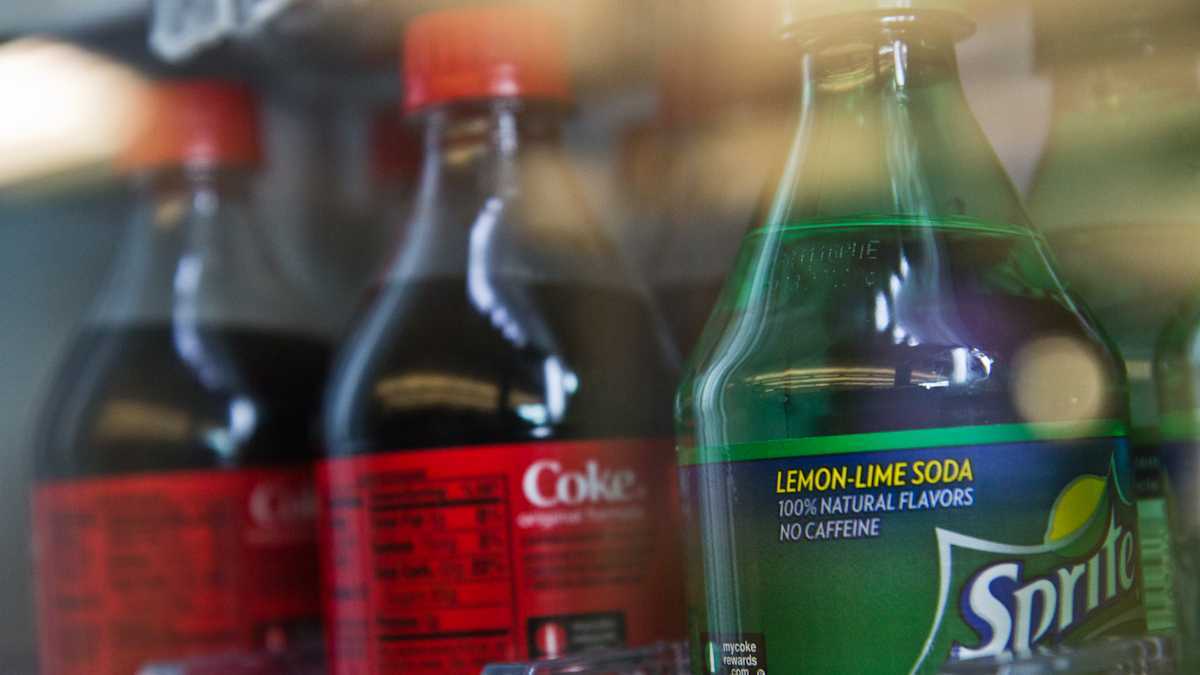Health researchers uncertain how taxing diet soda could affect potential Philly health benefits
Listen
(NewsWorks file photo)
After months of debate, Philadelphia has passed a 1.5 cents-per-ounce tax on sweetened drinks. Public health leaders from around the country view it as a partial win in the fight against obesity and diabetes.
But the new tax also applies to artificially sweetened diet soda. It puts Philadelphia into uncharted territory, with some questioning how it could impact the tax’s potential health benefits.
Drinking a lot of regular sugary soda has been linked to all sorts of health problems, but what about diet soda?
“Look, I drink a lot of Coke Zero. I like it,” admitted Barry Popkin, a nutrition expert at the University of North Carolina who has been involved with soda-tax policies and tracking the health benefits around the world.
In the pyramid of healthy options, Popkin said, drinking water is best. Then there are beverages like coffee and tea, and then … there’s diet soda.
“Until we can find a negative health effect, I do consume it,” said Popkin, who pointed to some research that’s finding that diet soda may reduce one’s cravings for more sugary drinks.
But other health researchers, including Marlene Schwartz from the Rudd Center for Food Policy and Obesity, are not so quick to drink the diet.
“The science on diet beverages is not as clear,” she said. “That’s been the problem.”
Schwartz said Coke Zero may not lead to diabetes, but she wonders if it could have other risks.
“I think people have concerns about artificial sweeteners,” she said. “So, is it going to contribute to obesity and type 2 diabetes? We don’t have evidence to suggest that, so if your target is obesity and type 2 diabetes, it does make more sense to drink diet soda than regular soda.
“But it may be that it has these other harms that we don’t know as much about yet.”
The many sugar substitutes out there, from aspartame to sucralose, make it harder to draw any one conclusion, she said.
Either way, Philadelphia’s tax on both diet and regular sodas is also clouding predictions on overall health benefits. A recent Harvard study estimated a tax directed at sugary drinks in Philadelphia could prevent upwards of 2,000 cases of diabetes in the city annually.
Popkin, the Coke Zero-carrying researcher, said he thinks the tax that has passed will bring health benefits, but he is worried that taxing diet soda could lessen the impact because there’s no incentive to switch from regular soda to diet.
“If you don’t give the option of the diet beverage consumption or it becomes as expensive as sugar-sweetened beverages, my fear is some of the people will just keep drinking less, but consume sugar-sweetened beverages,” he said. “Whereas if we hadn’t taxed the diet beverage, we would get a bigger health effect.”
There’s Dr. Tom Farley, Philadelphia’s health commissioner, who also questioned the neutral health effects of diet beverages. He has a different take.
“It might increase people who switch from sugary drinks to water because that’s the switch that will lower their cost,” he said. “And water is what we want people to drink, so overall that’s still a good thing.”
Schwartz, with the Rudd Center, said she is unsure whether people who normally consume regular soda would switch to diet if it were cheaper. She points to an overall drop in the consumption of diet soda nationwide. But, at least in Berkeley, California, which has most recently enacted a tax on soda, it’s unclear yet how people’s behaviors are changing, if at all.
All of this means researchers will be looking to Philadelphia, to study what actually happens over time.
WHYY is your source for fact-based, in-depth journalism and information. As a nonprofit organization, we rely on financial support from readers like you. Please give today.

